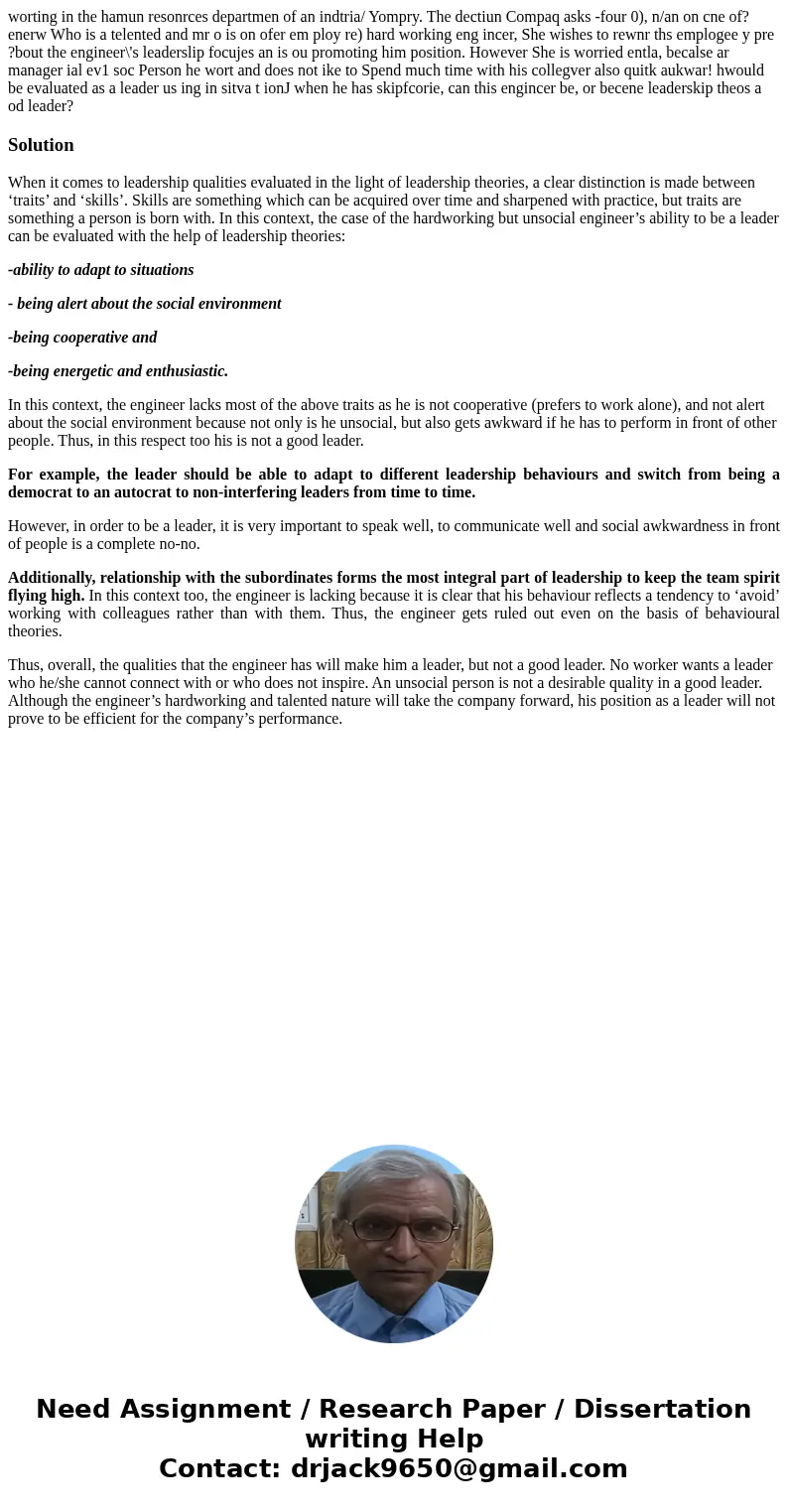worting in the hamun resonrces departmen of an indtria Yompr
Solution
When it comes to leadership qualities evaluated in the light of leadership theories, a clear distinction is made between ‘traits’ and ‘skills’. Skills are something which can be acquired over time and sharpened with practice, but traits are something a person is born with. In this context, the case of the hardworking but unsocial engineer’s ability to be a leader can be evaluated with the help of leadership theories:
-ability to adapt to situations
- being alert about the social environment
-being cooperative and
-being energetic and enthusiastic.
In this context, the engineer lacks most of the above traits as he is not cooperative (prefers to work alone), and not alert about the social environment because not only is he unsocial, but also gets awkward if he has to perform in front of other people. Thus, in this respect too his is not a good leader.
For example, the leader should be able to adapt to different leadership behaviours and switch from being a democrat to an autocrat to non-interfering leaders from time to time.
However, in order to be a leader, it is very important to speak well, to communicate well and social awkwardness in front of people is a complete no-no.
Additionally, relationship with the subordinates forms the most integral part of leadership to keep the team spirit flying high. In this context too, the engineer is lacking because it is clear that his behaviour reflects a tendency to ‘avoid’ working with colleagues rather than with them. Thus, the engineer gets ruled out even on the basis of behavioural theories.
Thus, overall, the qualities that the engineer has will make him a leader, but not a good leader. No worker wants a leader who he/she cannot connect with or who does not inspire. An unsocial person is not a desirable quality in a good leader. Although the engineer’s hardworking and talented nature will take the company forward, his position as a leader will not prove to be efficient for the company’s performance.

 Homework Sourse
Homework Sourse